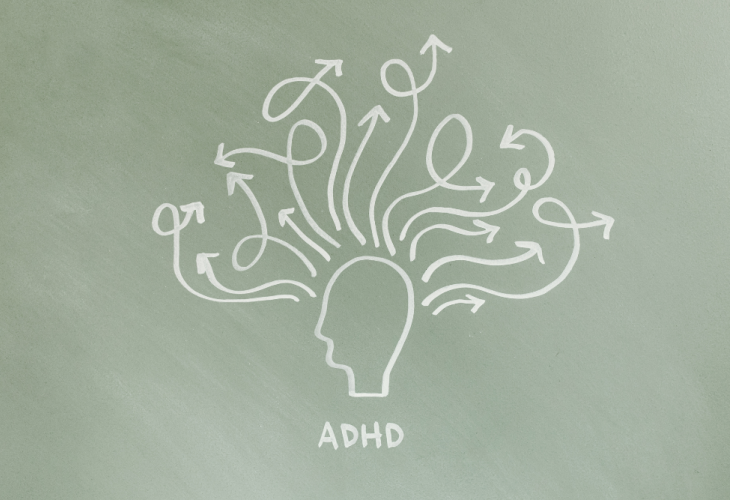Children's Education (Chinuch)
Helping Kids with Fitness and Focus Challenges: A Parent's Guide
Fitness, focus issues, and hyperactivity are common challenges affecting academic performance and self-esteem in children and teens. While some might require medication, there are also natural approaches that can help.

Fitness and focus challenges, especially when paired with hyperactivity, can be particularly difficult for children and teens. These challenges often affect academic performance, emotional regulation, and self-confidence. The good news is that supportive lifestyle habits can make a meaningful difference.
Balanced Nutrition
Many medical and scientific studies have shown the strong connection between balanced nutrition and healthy brain function, which can contribute to calmer behavior and improved focus. Consider incorporating the following foods into daily meals:
Fresh fruits and vegetables: Rich in essential vitamins, minerals, and antioxidants.
Lean proteins: Foods such as eggs, chicken, fish, and legumes support muscle development and healthy brain cells.
Whole grains: Options such as oats, buckwheat, and brown rice provide steady, long lasting energy.
Healthy fats: Avocado, nuts, seeds, and olive oil help enhance cognitive function.
Water: Adequate hydration is crucial for maintaining concentration, alertness and overall wellbeing.
Avoid processed foods and excess sugars: For children with hyperactivity, these can exacerbate symptoms.
Physical Activity
Studies published in the "Journal of Attention Disorders" and "Pediatrics" have demonstrated the impact of physical activity on kids with ADHD. Regular exercise can enhance fitness, concentration, and for hyperactive kids, help burn off excess energy in a healthy way.
Here are some ways to incorporate physical activity:
Walking or running: Simple and accessible activities that can be done almost anywhere. Children can walk or run on the way to school, around the neighborhood, alone if age appropriate, or together with family.
Yoga practice: Yoga encourages calmness, improves focus, and helps relax both the mind and body.
Sports games: Activities like basketball, soccer, or swimming provide enjoyable exercise, improve overall health, and help release excess energy.
Quality Sleep
Quality sleep plays a major role in maintaining concentration and emotional balance. Here are some tips that can help improve sleep:
Consistent sleep schedule: Set regular times for going to bed and waking up each day.
Limit screen use before bed: Reduce exposure to phones, tablets, and computers for at least one hour before bedtime.
Create a comfortable sleep environment: Make the room dark, quiet, and relaxing to support deeper, more restful sleep.
Time Management and Daily Routine
Child behavior specialists such as Dr. Ross Greene and Dr. Steven Phelps emphasize that creating a daily routine can greatly support children diagnosed with ADHD. The following time management strategies can help create structure and reduce stress:
Create a schedule: Plan daily or weekly tasks, including schoolwork, activities, meals, and sleep. Parents can assist in building the schedule and encourage the child to follow it consistently.
Include planned breaks: Allow short breaks of 5-10 minutes after every 45-60 minutes of study. These pauses help maintain focus and prevent frustration.
Practice prioritization: List tasks in order of importance and urgency. Begin with the tasks that need immediate attention, then continue with those that are less urgent but still important.
Comfortable Learning Environment
Educational research published in the "Educational Psychology" and "Journal of Learning Disabilities" shows that the learning environment plays a major role in supporting children who struggle with focus and attention. The following tips can help create a comfortable and effective study setting:
Order and cleanliness: Maintain a tidy and clean workspace to reduce stress and improve focus.
Minimize distractions: Choose a quiet study area with as few interruptions as possible.
Calming music: Soft, gentle music may help some students concentrate more easily.
Soothing movements: Allow children to use a ball, a fidget toy, or other calming objects during study sessions. Many stores offer toys and tools designed to support attention needs.
Dietary Supplements
Research published in "The American Journal of Psychiatry" and "The Journal of Child Neurology" suggest that certain dietary supplements may support concentration and help reduce symptoms associated with ADHD. Always consult a health professional before introducing supplements.
Omega 3: Supports healthy brain function and may reduce symptoms of increased activity.
Magnesium: Helps calm the body and supports the nervous system.
B Vitamins: Contribute to healthy brain and nerve function.
Important Note:
The natural methods described above can be helpful for improving fitness and focus, but every child is different. Some children and teens may also benefit from medication or behavioral therapy to manage attention and activity challenges. Before making significant changes to your child’s diet, exercise habits, or daily routine, it is best to consult a doctor, nutritionist, or other qualified health professional.

